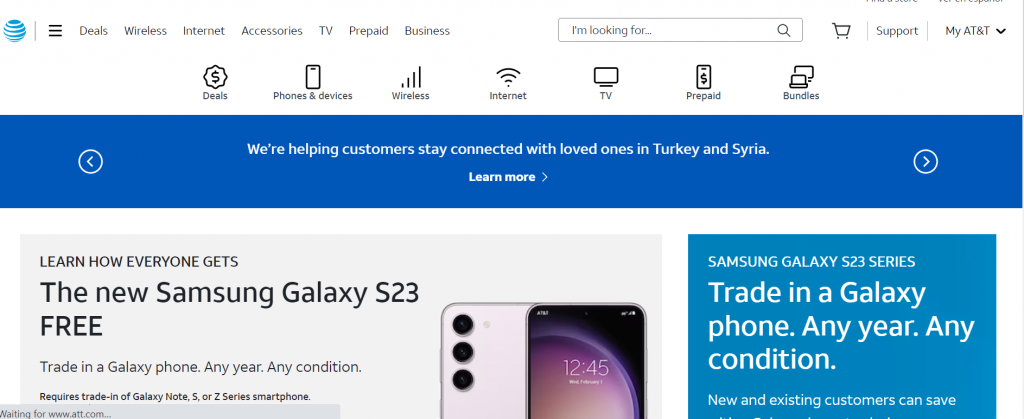
In today’s fast-paced world, having a reliable and high-speed internet connection is not just a luxury but a necessity. Whether you’re running an online business or managing your personal affairs, the right Internet Service Provider (ISP) can make all the difference. But with so many options available in the market, choosing the right ISP for your needs can be overwhelming – especially if you’re new to it all. That’s why we’ve put together this guide to help beginners navigate through the maze of ISPs and choose one that meets their requirements perfectly. So sit back, relax, and read on to find out everything you need to know about selecting the perfect ISP for your home or business!
What is an Internet Service Provider (ISP)?
An Internet Service Provider (ISP) is a company that provides access to the internet. This can be done in a number of ways, including through dial-up, broadband, or fiber optic connections.
An ISP is responsible for providing its users with a connection to the internet, as well as ensuring that the connection is fast and reliable. In order to provide these services, an ISP must have a network of servers that are connected to the internet backbone.
When you sign up for an ISP, you will be given an account with a username and password. You will then be able to connect to the internet through this account. Depending on the type of account you have, you may be able to access the internet at any time, or you may only be able to do so during certain hours.
If you are looking for an ISP, it is important to research different providers in your area. You should also read customer reviews in order to get an idea of what others think about a particular provider. When choosing an ISP, you should consider factors such as price, speed, and reliability.
Different Types of ISPs
ISPs, or Internet Service Providers, are the companies that provide us with internet access. There are many different types of ISPs out there, each with their own advantages and disadvantages. Here is a breakdown of the most common types of ISPs:
-Dial-up: Dial-up is the most basic and oldest type of internet connection. It uses a regular phone line to connect to the internet, and is very slow compared to other options. However, it is also very affordable, making it a good option for people on a budget.
-DSL: DSL, or Digital Subscriber Line, is a type of high-speed internet that uses existing phone lines. It is much faster than dial-up but can be more expensive.
-Cable: Cable internet uses the same infrastructure as cable TV, providing high speeds at a reasonable price. It is widely available in urban areas but can be less reliable than other options.
-Fiber: Fiber optic cables are the newest and fastest type of internet technology. They offer speeds that are far superior to all other types of internet, but they can also be quite expensive.
Selecting the Right ISP for You

There are a lot of Internet Service Providers (ISPs) out there, and it can be tough to figure out which one is right for you. Here are some things to consider when choosing an ISP:
1. Coverage area – What is the coverage area of the ISP? Make sure that the ISP has good coverage in your area.
2. Speed – How fast does the ISP offer internet speeds? If you need high-speed internet for gaming or streaming video, make sure that the ISP offers speeds that will meet your needs.
3. Data caps – Does the ISP have any data limits? If you plan on using a lot of data, make sure that the ISP doesn’t have any limits that would restrict your usage.
4. Price – How much does the ISP charge for service? Make sure to compare prices between different ISPs to get the best deal.
5. Contract terms – What are the contract terms for the ISP? Some ISPs require long-term contracts, while others offer month-to-month plans. Consider your needs before signing up for service.
Tips for Improving Your Internet Connection
If you’re not happy with your current internet speeds, there are a few things you can do to try and improve your connection. First, check with your internet service provider to see if there are any areas of improvement on their end. If not, there are a few things you can do on your own to help improve your connection.
Here are a few tips for improving your internet connection:
1. Check your router’s settings and make sure it’s optimized for the best possible performance.
2. Place your router in a central location in your home to ensure maximum coverage.
3. Avoid using wireless devices that operate on the same frequency as your router, such as microwaves or cordless phones.
4. If you have a lot of devices connected to your network, consider investing in a mesh Wi-Fi system to help distribute the signal evenly throughout your home.
5. Keep your router and other networking equipment up-to-date with the latest firmware updates.
Get Best Services With AT&T/ATT

AT&T/ATT is one of the oldest and most well-known internet service providers in the United States. They offer both DSL and fiber internet plans, as well as TV and phone services. AT&T has a wide coverage area and offers some of the best speeds and prices for their services.
AT&T is one of the leading Internet service providers in the United States. The company offers a variety of services, including high-speed Internet, digital TV, and home phone service. AT&T’s high-speed Internet service is available in many areas of the country. The company’s digital TV service offers a variety of channels, including HD channels. AT&T’s home phone service offers many features, such as caller ID and voicemail.





